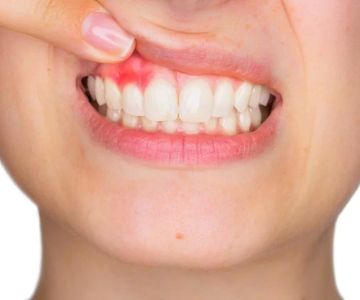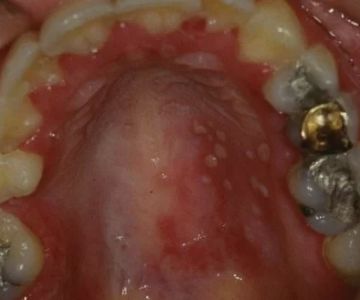
What Sexually Transmitted Diseases Can Be Caused from Oral Sex?
1. Understanding the Risks of Oral Sex
Oral sex, while often considered safer than vaginal or anal sex, still carries the risk of transmitting sexually transmitted diseases (STDs). Many people are unaware that oral sex can lead to the spread of infections, which can affect both the mouth and the genitals. In this article, we will explore the different types of sexually transmitted diseases (STDs) that can be caused by oral sex, how they are transmitted, and the steps you can take to protect yourself and your partner.
2. Common STDs That Can Be Spread Through Oral Sex
2.1 Herpes Simplex Virus (HSV)
Herpes simplex virus (HSV) is one of the most common infections that can be transmitted through oral sex. HSV comes in two forms: HSV-1 and HSV-2. HSV-1 is commonly associated with oral herpes, resulting in cold sores around the mouth, but it can also cause genital herpes if transmitted to the genital area during oral sex. Conversely, HSV-2, typically associated with genital herpes, can also be transmitted to the mouth through oral sex.
The virus is highly contagious and can be passed even when sores are not present. Many people infected with HSV do not exhibit visible symptoms but can still spread the virus to others. The best way to reduce the risk of HSV transmission is to avoid oral sex during outbreaks and to use protection, such as dental dams or condoms.
2.2 Gonorrhea
Gonorrhea is a bacterial infection that can affect the throat, commonly referred to as "oral gonorrhea" or "gonococcal pharyngitis." This infection can be transmitted through oral sex with an infected partner. Symptoms in the throat can include a sore throat, difficulty swallowing, and swelling of the lymph nodes. However, many individuals may not experience any symptoms, which is why regular testing is crucial.
If left untreated, gonorrhea can lead to serious complications, including pelvic inflammatory disease (PID) in women, and infertility in both men and women. Gonorrhea is treatable with antibiotics, but it’s important to complete the prescribed course to avoid developing antibiotic-resistant strains of the bacteria.
2.3 Chlamydia
Chlamydia, another bacterial infection, can also be spread through oral sex. While it is more commonly known to infect the genital area, it can also infect the throat. Chlamydia throat infections often go unnoticed since they can be asymptomatic. When symptoms do occur, they may include a sore throat or swollen glands. Just like gonorrhea, chlamydia is treatable with antibiotics, but untreated infections can lead to long-term complications like infertility and chronic pelvic pain.
2.4 Syphilis
Syphilis is a bacterial infection that can cause sores, rashes, and more serious health issues if left untreated. It can be transmitted through direct contact with syphilis sores, which may appear in the genital area, on the lips, or in the mouth. Oral sex can lead to syphilis if one partner has an active syphilis sore in or around the mouth or genital area.
Syphilis progresses in stages, and it’s highly contagious during the primary and secondary stages. Symptoms of syphilis may include painful sores, rashes, and fever. If left untreated, syphilis can cause long-term damage to the heart, brain, and other organs. Treatment with antibiotics, typically penicillin, can cure syphilis, but early detection is key.
2.5 Human Papillomavirus (HPV)
Human papillomavirus (HPV) is a group of more than 200 related viruses, some of which can be transmitted through oral sex. Certain types of HPV can cause genital warts, while others are linked to throat cancer. HPV infections in the mouth and throat are known as oropharyngeal cancers. These cancers have become more common in recent years, and HPV is believed to be the primary cause.
Most people with oral HPV infections do not develop cancer, but it’s still a significant risk. Vaccines are available to prevent infection with the types of HPV that most commonly cause cancer and genital warts. It's also important to have regular check-ups, as early detection can help manage the risk of cancer development.
2.6 Hepatitis A, B, and C
Hepatitis A, B, and C are viral infections that affect the liver and can be transmitted through oral sex, especially when there is direct contact with bodily fluids. Hepatitis A is usually transmitted through fecal-oral contact, but it can also spread through oral sex, particularly if hygiene is poor. Hepatitis B and C are more commonly spread through blood-to-blood contact, but hepatitis B can also be transmitted through oral sex, especially when there are cuts or sores in the mouth or genital area.
While Hepatitis A can be prevented through vaccination, Hepatitis B and C require different approaches. Hepatitis B can be prevented with a vaccine, while there is currently no vaccine for Hepatitis C. Antiviral medications can manage hepatitis B and C, but prevention is key, and protection during oral sex can significantly reduce the risk of transmission.
3. How to Protect Yourself and Your Partner
3.1 Use Protection
The most effective way to reduce the risk of contracting or spreading sexually transmitted diseases is to use protection. Condoms and dental dams are simple but effective barriers that can prevent the exchange of bodily fluids during oral sex. These barriers are particularly important when engaging in oral sex with partners whose sexual health status is unknown.
3.2 Get Regular Testing
Regular testing is essential for sexually active individuals, even if you don’t show symptoms of an STD. Many STDs, like gonorrhea, chlamydia, and HPV, can be present without noticeable symptoms, so it’s important to get tested regularly. Both partners should be tested before engaging in unprotected oral sex to ensure their health and the health of others.
3.3 Communication and Trust
Open and honest communication with your partner about sexual health is critical. Discussing your sexual history, getting tested together, and agreeing on protective measures can help reduce anxiety and ensure that both parties are comfortable and protected. Building trust is key to a healthy sexual relationship and minimizing the risks of STDs.
4. The Importance of Seeking Medical Help
If you suspect you have contracted an STD or are experiencing symptoms such as sores, a sore throat, or unusual discharge, it’s crucial to seek medical advice. Early detection and treatment can prevent the spread of infections and reduce the risk of long-term complications. Your healthcare provider can offer advice on the next steps and treatment options.
For more information on how to protect yourself from STDs and maintain good sexual health, visit Family Dentistry Online for tailored advice and the best products and services to keep you safe.







 Dr. Eric Chu4.0 (18 review)
Dr. Eric Chu4.0 (18 review) Family and Cosmetic Dentistry of Randolph, Dr. Anthony Fusco & Dr. Joseph Caravano5.0 (280 review)
Family and Cosmetic Dentistry of Randolph, Dr. Anthony Fusco & Dr. Joseph Caravano5.0 (280 review) Tranquil Dental4.0 (372 review)
Tranquil Dental4.0 (372 review) Great Expressions Dental Centers - Cascade4.0 (1835 review)
Great Expressions Dental Centers - Cascade4.0 (1835 review) Fontana Smiles3.0 (7 review)
Fontana Smiles3.0 (7 review) Jean-Paul Boudreau DMD, LLC4.0 (89 review)
Jean-Paul Boudreau DMD, LLC4.0 (89 review) The Importance of Oral Health Education During Pregnancy for a Healthy Pregnancy
The Importance of Oral Health Education During Pregnancy for a Healthy Pregnancy Why Skipping Dental Checkups Can Lead to Bigger Oral Health Problems
Why Skipping Dental Checkups Can Lead to Bigger Oral Health Problems Best Tips for Brushing Your Teeth Properly for Healthy Gums: Essential Techniques for Oral Health
Best Tips for Brushing Your Teeth Properly for Healthy Gums: Essential Techniques for Oral Health Advantages of Porcelain Dental Restorations
Advantages of Porcelain Dental Restorations How Can Diabetes Cause Tooth and Gum Problems? Preventing and Managing Oral Health Issues
How Can Diabetes Cause Tooth and Gum Problems? Preventing and Managing Oral Health Issues Healthy Habits for Promoting Good Oral Health and Hygiene: Tips for a Healthy Smile
Healthy Habits for Promoting Good Oral Health and Hygiene: Tips for a Healthy Smile